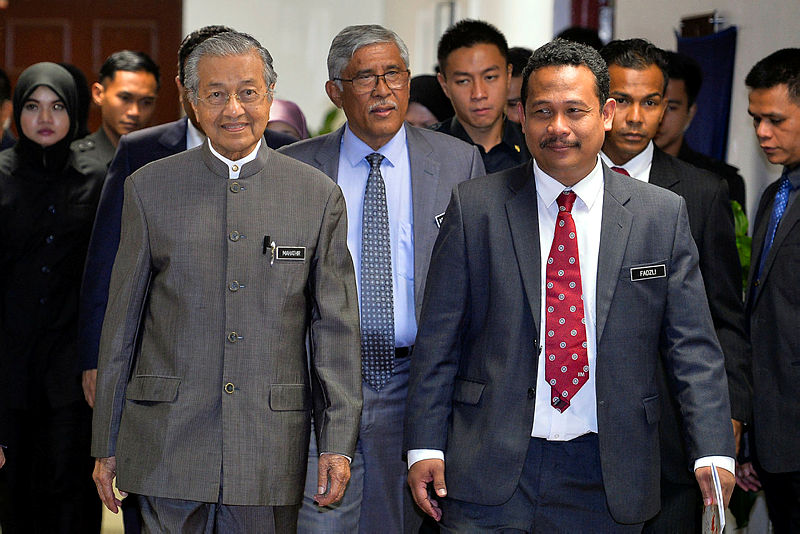KUALA LUMPUR: The need to expedite government services dealings, tussling for posts, high cost of living, greed, opportunities and power, external stress and peer pressure are among the factors said to be linked to corruption in the public services sector.
This sector is considered the most vulnerable to corrupt practices, especially in the area of government decision-making and procurement.
A Malaysian Anti-Corruption Commission (MACC) statistic revealed that 63.3% of complaints received regarding corruption involved the public sector.
Congress of Unions of Employees in the Public and Civil Services (Cuepacs) president Datuk Azih Muda said an effective check-and-balance mechanism, particularly for approval and procurement, needed to be set up to stop fraud and mismanagement in the public sector.
He hoped that the 2019-2023 National Anti-Corruption Plan (NACP), launched by Prime Minister Tun Dr Mahathir Mohamad on Tuesday, would be sufficient to tackle the corruption menace in the country.
“We hope it (corruption cases) is dwindling. It’s difficult to accept that it hasn’t ... we must go back to basic education, beginning from primary schools or when the children are growing up, to be inculcated with values like trustworthiness.
“The government must also play its role in controlling the corruption menace by tackling the rising cost of living,” he told Bernama here today.
Malaysian Institute of Integrity (Integriti) acting president and chief executive officer Dr Ahmad Fadzli Ahmad Tajuddin said that since the public sector dealt with procurement, like the purchase of food, services and jobs, which involved dealings with the private sector, it was inevitable that certain parties would try to take short cuts.
“Sometimes the private sector wants certain dealings to be expedited, resulting in the public sector management taking short cuts. We cannot pin the blame for this menace on one party only because everyone must have integrity when carrying out their duties and responsibilities,” he said.
Transparency International-Malaysia (TI-M) president Datuk Akhbar Satar said that based on the MACC records from 2013 to 2018, 44% of those arrested for corruption involved civil servants, which was alarming.
“Various factors cause government servants to be involved in corruptuion, among them being the opportunity and power possessed by some, surrounding stress (family, life) as well as peer pressure,” he said.
Akhbar suggested that heads of organisations conduct more frequent and tighter supervisions to ensure corrupt practices did not exist among their staff as well as impose punitive measures like warnings and expulsions.
He also said that any action plan to fight corruption should be formulated by setting targets which were practical and not rhetoric as well as implemented with effective mechanisms.
“The anti-corruption plans formulated prior to this can’t seem to fully tackle the problem, therefore the NACP should be holistic, covering from the highest, that is the government, to the lowest, that is the public.
“Related agencies like MACC must act on information within its jurisdiction without adopting selective investigation while the public must be the ears and eyes of the authorities by reporting any corrupt practices,” he said.
A total of 115 initiatives under six main sectors have been outlined under the NACP in a committed effort to take the country towards being corruption-free. The six main sectors involve politics, public sector administration, procurement in the public sector, laws and the judiciary, enforcement of laws and corporate governance. — Bernama














